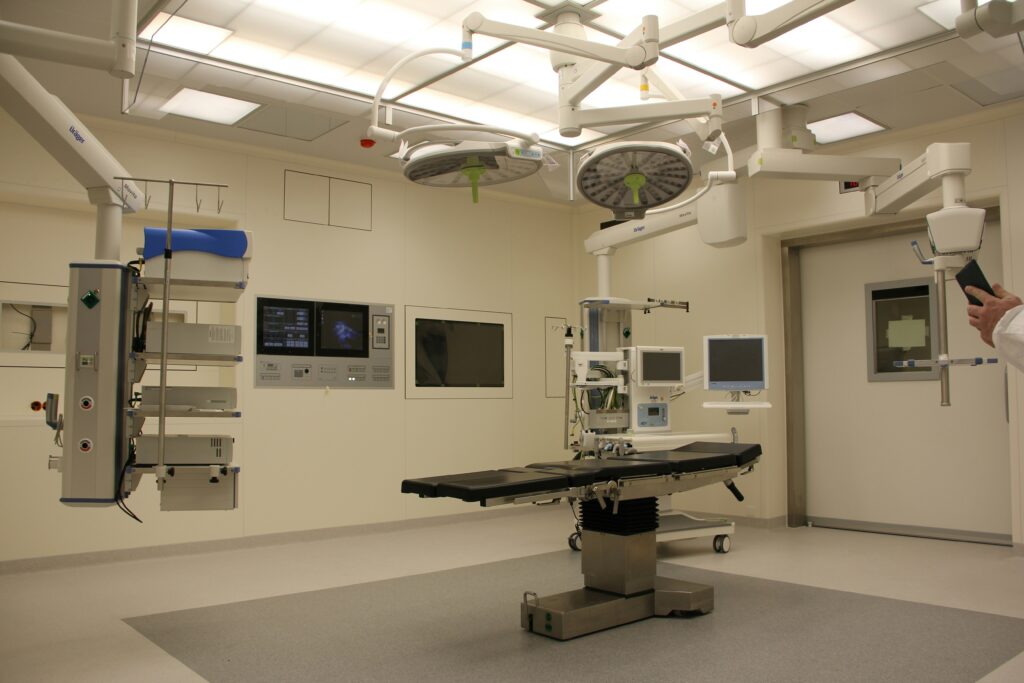Healthcare has a bright future with the application of artificial intelligence (AI) in every aspect of the health profession. Patients will receive care differently, physicians will make decisions differently and medical research will evolve differently. As technology improves over time, the incorporation of these artificial intelligent systems into healthcare systems will aid in diagnosis of diseases, customization of treatment, increase operational efficiency, foster preventive measures and lower exceptionally high health care costs. Below are some opportunities where the growth of AI is believed to have the bigts impact. ai in healthcare.
Healthcare Analytics and Interpretation of Images through AI in healthcare
AI stands to revolutionize the industry particularly in the fields of radiology, medical imaging and diagnostics. With the advent of deep learning techniques, the AI systems are expertized in image processing such as X-ray, MRI, CT-scan by finding the pathological lesions with similar or better efficacy compared to the qualified radiologists. In addition to that, patterns of patient’s data have been analyzed using AI in order to detect diseases such as Cancer, heart-related diseases and brain-related such as Alzheimer’s disease from an early stage.
As a case in point, AI systems can learn to search for tumors in mammograms, or even look for retinal damage in people who have diabetes. Increases early stage detection which is important in cases such as cancer where most of the prognosis is improved at the early stages when diagnosed. With Help from AI, Zocdoc Chase resources that process and analyze huge amounts of data improves the diagnosis, minimizes human fallibility and enhances prognosis for the patient.
The Evolution of Medicine: Medicine and Treatment for Every Individual, ai in healthcare
Healthcare is likely to benefit more from the advent of this advanced technology as it aims to provide patient-centric solutions. It is also AI algorithms that can use already existing pharmacogenomic information to retrieve data about the patient’s genome in a specific location and predict the whether or not a patient is non-responsive to a drug or Drugs in General.
In the field of oncology for instance, AI assists in the analysis of the patient’s genetic constitution and helps the oncologists to determine the optimal anti cancer therapies to include in the patient’s treatment regimen based on the molecular profile of the individual. This lowers the previous Yorkshire efforts of targeting with Zero errors at the beginning and minimal side effects and a good average probability of treatment success later on. Advanced clinical applications, such as those offered by IBM Watson, have assisted clinicians in formulating individualized therapies incorporating vast amounts of information beneficial in the development of therapies aimed at treating specific patients.
Predictive Analysis and Preventive Care, ai in healthcare
The use of AI predictive analytics for predicting the probable future events of a disease is one of the areas of application that experts highly regard. To demonstrate the advancement in this area, it suffices understanding the predictive aspects of deep learning that depend upon historical patient hospitalization records, family structure, and genetic material. For example, it is possible to determine factors associated with patients that may predispose them to heart disease and cerebrovascular accidents (stroke) with technological improvement.
For instance, AI method analysis of the electronic health records (EHRs) helps inform clinicians the possible patients who are at risk of suffering from diseases including stroke, heart disease or diabetes. On the basis of this information, appropriate therapeutic measures can be applied in the prevention of these diseases, follow up of such patients can be enhanced to prevent the occurrence of such health events, or such health events can be prevented completely.
Drug Discovery by AI Powered Active Pharmaceutical Ingredients and its Planning
Developing a new drug has been traditionally time consuming and expensive to the extent that in order for the drug to reach the market up to billions of dollars may be utilized. Drug discovery the process of bringing a new drug into the market is a time-consuming and costly venture. The intervention of artificial intelligence in this arena will help in speeding up the process of drug discovery by performing detailed analyses of chemical compounds, genomemics, generics and clinical trial data faster.
Within seconds, AI models are capable of predicting large numbers of chemical interactions making it easier for researchers to screen masses of compounds with therapeutic activities in a much shorter period of time. Other AI systems are capable of predicting how effective a medication will be in a specific population of patients enabling the development of better-targeted treatments.
Specialized AI platforms such as Insilico Medicine and Atomwise have already delivered such outcomes by de novo discovering new compounds against various diseases, including cancer and fibrosis, as well as predicting the success of upcoming clinical trials based on historical data.
Virtual Health Assistants and Chatbots
Patient engaging and providing health care delivery services are also enhanced by AI enabled virtual assistants and chatbots. Within the healthcare system itself or remotely, these devices are able to answer basic medical questions, support patients with chronic diseases or those on medical treatment, or remind them of medication schedules, 24 hours a day. AI chatbots have the capability to assess patients’ symptoms and determine if they warrant further medical attention, thus playing a crucial part in conserving medical resources.
Furthermore, virtual health assistants are also able to assist health care workers in performing their duties by taking up nonclinical tasks such as answering phone calls, making appointments, and documenting patients’ data. Professional time is saved in this way which can be better utilized for taking care of patients.
Recently, modern techniques in natural language processing (NLP) enable real-time recording of patient interactions which helps providers spend more time with the patients and reduces the amount of time spent on entering the data. Proper development of the AI technologies can also allow management of healthcare facilities to optimize available resources, study trends for admissions, and organize distributions of supplies more efficiently.
Conclusion: AI as a Game Changer in Healthcare
The future of AI in healthcare holds transformative potential, from enhanced diagnostics and personalized treatments to more efficient administrative processes. As AI technologies continue to evolve, their integration into healthcare systems will lead to more predictive, proactive, and precise care. While there are challenges to overcome, the promise of AI to revolutionize patient outcomes, optimize medical practices, and improve global health is vast and undeniable. The future of healthcare, driven by AI, will be one of innovation, efficiency, and personalized care.
Concerns and Ethical Issues
Despite the fact that AI can do great things in the area of health care, there are many problems that still remain to be solved. The issue of data privacy and security is very critical in biomedical informatics, given that the data in question is of a highly sensitive nature. There is a need to institute strong responses to elements that compromise the confidentiality of the health records of the patients.
Alternately, AI bias also poses a challenge, where the compressive comprehensions of the algorithm models trained on such uselful but univarsal datasets yield faulty understandings of the particular demographics. The solution to these will be in efforts towards building diversity in the data used in training the AI systems. In addition, the expected assumption of more powers by the AI systems during the process brings what now has become a hot potato in history – the question of ethics – who is the scope of blame if AI makes mistakes?

Ai in healthcare
Change has always been a factor in the health care system due to advances in technology. However, new trends threatening to overhaul the practice of medicine as we know it will likely emerge by 2024. So, they help build artificial intelligence models which are or will be able to remember and comprehend even the most sophisticated medical images, videos, and text therefore enhancing individualized medicine. These technologies have been posed to reduce the administrative load, enhance the clinical related tasks to the providers, and take some aspects of care from the patients.
AI`s capability to comprehend massive data has been disruptive in the areas of medical imaging, personalized medicine, and diagnostics. It is expected that transformative adaptive AI that can change the way they work is also coming, and the forecast is such that the market will grow more than 44% every year up till the year 2029. Besides increasing the precision of GPS and other geocomputational tools, this technology is assisting the healthcare industry with remote patient treatment via wearable devices and telemedicine. ai in healthcare
Conclusion: The Role of AI in Changing the Face of Healthcare
Generative AI is yet another focus area of technology advancement. Using natural language processing and higher learning models, platforms such as GPT-4 multitask and Vertex AI Search enhance the access to the relevant information related to the patient, thus helping the clinicians to expedite the activities and assist systems like health care call centers in patient care. ai in healthcare
In the future, AI will be the linchpin of the individualization of treatment tactics, mental health care with AI chatbots and perhaps even drug discovery. Healthcare, with these changes, could be more convenient and efficient as well as more personalized to the individual patient. ai in healthcare
The scope of AI in healthcare in the future looks promising, as possible solutions include better and faster diagnosis and treatment, but also improved and streamlined business operations. As innovations progress, a more precise, preemptive and interventional type of care will be enabled through the seamless insertion of AI technology into patients’ healthcare systems.
And, although such application has a number of hurdles to be overcome, it is clear how great and obvious the possibilities for change of patient care, practical medicine and health care are thanks to AI. Rather than a terrifying science fiction, the words of doctors in the future will go hand in hand with the power of AI to help realize healthcare with a revolution of personalization, effectiveness and efficiency.




Pingback: The Nutritional Powerhouse Of Pumpkin Seeds: What you need to know - healthyplusorigin